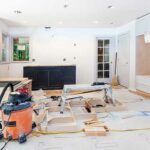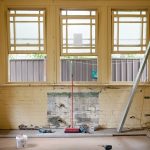March 9, 2018
Adapting a home or business may be necessary as people grow older. It may also be beneficial to adapt your property if someone has a disability. Various alterations can be undertaken to make areas suitable for individuals who have limited mobility or a disability.
Common Alterations
Some of the common alterations that can be considered include the following:
- Widening passageways and doorways.
- Moving entry phones, doorbells, door handles, and light switches to convenient levels or heights.
- Installation of grab rails to enhance support.
- Adjusting bathroom facilities such hand basins at suitable heights, baths with a hoist, deck shower, back rest in the toilet, and raised toilet.
- Locating bedroom or bathroom facilities at the ground-floor level.
- Installing ramps and minimizing the use of stairs or steps.
- Making sure that external areas such as driveways or paths have a level and firm surface.
- Installing an elevator or a stair lift.
- Specializing furniture such as support chairs and adjustable beds.
- Alert devices being set up for people who are deaf or have difficulties with hearing.
- In case of an emergency like a fire, it is essential for all exits to be accessible at all times. You should not be restricted to relying entirely on mechanical solutions such as lifts when you want to get out. Visit Durham Region Renovator.
Consulting Professionals
- Before making adaptations to your home or business, you can consult renovation specialists and experts who will evaluate your daily lifestyle needs. This will enable them to provide insight into the practical changes that you can make.
- It is important to get professional advice regarding home or business adaptations and specialized equipment according to your short and long-term needs.
- Planning permission from the relevant authorities may be required if you plan to add an extra room or a structure.
- Professionals are aware of the importance of enhancing accessibility to different parts of structures. This is crucial for safety and aiding independence.
- A considerable percentage of the population contends with special needs. With an aging population along with individuals who have varying special needs and abilities, there continues to be an increasing demand for taking existing homes and business premises and ensuring they are adaptable for different types of people.
Tips for making tasks easier
If you aim to be more independent within your property for a longer time, there are different adaptations that can effectively make daily life easier. There is an extensive range of equipment and changes that can ease daily tasks.
- If you need help to access your home or business, you can consider outer lights that will improve visibility and hand rails or a ramp for your front door.
- For help moving around the building, options include widening or repositioning doors to facilitate wheelchair access, newel rails for turning around corners of stair posts, another banister or grab rails, and a wheelchair or stair lift.
- Baths can feature flood detectors, removable bath boards for getting in and out, an even access shower, and a bath lift or shower seat.
- Consider adapting your kitchen with a sink that is accessible for wheelchairs, boards with clamps that can secure tins and bottle and cupboards that have pull-out shelves to ease access.







